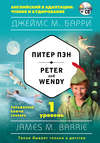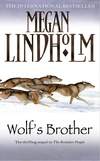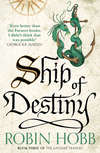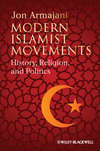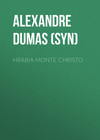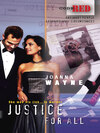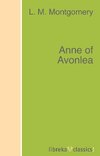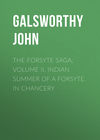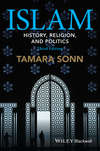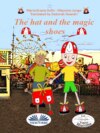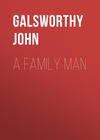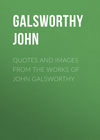Kitabı oku: «The Forsyte Saga, Volume III. Awakening. To Let», sayfa 16
PART III
I. – OLD JOLYON WALKS
Twofold impulse had made Jolyon say to his wife at breakfast “Let’s go up to Lord’s!”
“Wanted” – something to abate the anxiety in which those two had lived during the sixty hours since Jon had brought Fleur down. “Wanted” – too, that which might assuage the pangs of memory in one who knew he might lose them any day!
Fifty-eight years ago Jolyon had become an Eton boy, for old Jolyon’s whim had been that he should be canonised at the greatest possible expense. Year after year he had gone to Lord’s from Stanhope Gate with a father whose youth in the eighteen-twenties had been passed without polish in the game of cricket. Old Jolyon would speak quite openly of swipes, full tosses, half and three-quarter balls; and young Jolyon with the guileless snobbery of youth had trembled lest his sire should be overheard. Only in this supreme matter of cricket he had been nervous, for his father – in Crimean whiskers then – had ever impressed him as the beau ideal. Though never canonised himself, Old Jolyon’s natural fastidiousness and balance had saved him from the errors of the vulgar. How delicious, after bowling in a top hat and a sweltering heat, to go home with his father in a hansom cab, bathe, dress, and forth to the “Disunion” Club, to dine off white bait, cutlets, and a tart, and go – two “swells,” old and young, in lavender kid gloves – to the opera or play. And on Sunday, when the match was over, and his top hat duly broken, down with his father in a special hansom to the “Crown and Sceptre,” and the terrace above the river – the golden sixties when the world was simple, dandies glamorous, Democracy not born, and the books of Whyte Melville coming thick and fast.
A generation later, with his own boy, Jolly, Harrow-buttonholed with corn-flowers – by old Jolyon’s whim his grandson had been canonised at a trifle less expense – again Jolyon had experienced the heat and counter-passions of the day, and come back to the cool and the strawberry beds of Robin Hill, and billiards after dinner, his boy making the most heart-breaking flukes and trying to seem languid and grown-up. Those two days each year he and his son had been alone together in the world, one on each side – and Democracy just born!
And so, he had unearthed a grey top hat, borrowed a tiny bit of light-blue ribbon from Irene, and gingerly, keeping cool, by car and train and taxi, had reached Lord’s Ground. There, beside her in a lawn-coloured frock with narrow black edges, he had watched the game, and felt the old thrill stir within him.
When Soames passed, the day was spoiled. Irene’s face was distorted by compression of the lips. No good to go on sitting here with Soames or perhaps his daughter recurring in front of them, like decimals. And he said:
“Well, dear, if you’ve had enough – let’s go!”
That evening Jolyon felt exhausted. Not wanting her to see him thus, he waited till she had begun to play, and stole off to the little study. He opened the long window for air, and the door, that he might still hear her music drifting in; and, settled in his father’s old armchair, closed his eyes, with his head against the worn brown leather. Like that passage of the Cesar Franck Sonata – so had been his life with her, a divine third movement. And now this business of Jon’s – this bad business! Drifted to the edge of consciousness, he hardly knew if it were in sleep that he smelled the scent of a cigar, and seemed to see his father in the blackness before his closed eyes. That shape formed, went, and formed again; as if in the very chair where he himself was sitting, he saw his father, black-coated, with knees crossed, glasses balanced between thumb and finger; saw the big white moustaches, and the deep eyes looking up below a dome of forehead and seeming to search his own, seeming to speak. “Are you facing it, Jo? It’s for you to decide. She’s only a woman!” Ah! how well he knew his father in that phrase; how all the Victorian Age came up with it! And his answer “No, I’ve funked it – funked hurting her and Jon and myself. I’ve got a heart; I’ve funked it.” But the old eyes, so much older, so much younger than his own, kept at it; “It’s your wife, your son; your past. Tackle it, my boy!” Was it a message from walking spirit; or but the instinct of his sire living on within him? And again came that scent of cigar smoke-from the old saturated leather. Well! he would tackle it, write to Jon, and put the whole thing down in black and white! And suddenly he breathed with difficulty, with a sense of suffocation, as if his heart were swollen. He got up and went out into the air. The stars were very bright. He passed along the terrace round the corner of the house, till, through the window of the music-room, he could see Irene at the piano, with lamp-light falling on her powdery hair; withdrawn into herself she seemed, her dark eyes staring straight before her, her hands idle. Jolyon saw her raise those hands and clasp them over her breast. ‘It’s Jon, with her,’ he thought; ‘all Jon! I’m dying out of her – it’s natural!’
And, careful not to be seen, he stole back.
Next day, after a bad night, he sat down to his task. He wrote with difficulty and many erasures.
“MY DEAREST BOY,
“You are old enough to understand how very difficult it is for elders to give themselves away to their young. Especially when – like your mother and myself, though I shall never think of her as anything but young – their hearts are altogether set on him to whom they must confess. I cannot say we are conscious of having sinned exactly – people in real life very seldom are, I believe – but most persons would say we had, and at all events our conduct, righteous or not, has found us out. The truth is, my dear, we both have pasts, which it is now my task to make known to you, because they so grievously and deeply affect your future. Many, very many years ago, as far back indeed as 1883, when she was only twenty, your mother had the great and lasting misfortune to make an unhappy marriage – no, not with me, Jon. Without money of her own, and with only a stepmother – closely related to Jezebel – she was very unhappy in her home life. It was Fleur’s father that she married, my cousin Soames Forsyte. He had pursued her very tenaciously and to do him justice was deeply in love with her. Within a week she knew the fearful mistake she had made. It was not his fault; it was her error of judgment – her misfortune.”
So far Jolyon had kept some semblance of irony, but now his subject carried him away.
“Jon, I want to explain to you if I can – and it’s very hard – how it is that an unhappy marriage such as this can so easily come about. You will of course say: ‘If she didn’t really love him how could she ever have married him?’ You would be right if it were not for one or two rather terrible considerations. From this initial mistake of hers all the subsequent trouble, sorrow, and tragedy have come, and so I must make it clear to you if I can. You see, Jon, in those days and even to this day – indeed, I don’t see, for all the talk of enlightenment, how it can well be otherwise – most girls are married ignorant of the sexual side of life. Even if they know what it means they have not experienced it. That’s the crux. It is this actual lack of experience, whatever verbal knowledge they have, which makes all the difference and all the trouble. In a vast number of marriages-and your mother’s was one – girls are not and cannot be certain whether they love the man they marry or not; they do not know until after that act of union which makes the reality of marriage. Now, in many, perhaps in most doubtful cases, this act cements and strengthens the attachment, but in other cases, and your mother’s was one, it is a revelation of mistake, a destruction of such attraction as there was. There is nothing more tragic in a woman’s life than such a revelation, growing daily, nightly clearer. Coarse-grained and unthinking people are apt to laugh at such a mistake, and say, ‘What a fuss about nothing!’ Narrow and self-righteous people, only capable of judging the lives of others by their own, are apt to condemn those who make this tragic error, to condemn them for life to the dungeons they have made for themselves. You know the expression: ‘She has made her bed, she must lie on it!’ It is a hard-mouthed saying, quite unworthy of a gentleman or lady in the best sense of those words; and I can use no stronger condemnation. I have not been what is called a moral man, but I wish to use no words to you, my dear, which will make you think lightly of ties or contracts into which you enter. Heaven forbid! But with the experience of a life behind me I do say that those who condemn the victims of these tragic mistakes, condemn them and hold out no hands to help them, are inhuman, or rather they would be if they had the understanding to know what they are doing. But they haven’t! Let them go! They are as much anathema to me as I, no doubt, am to them. I have had to say all this, because I am going to put you into a position to judge your mother, and you are very young, without experience of what life is. To go on with the story. After three years of effort to subdue her shrinking – I was going to say her loathing and it’s not too strong a word, for shrinking soon becomes loathing under such circumstances – three years of what to a sensitive, beauty-loving nature like your mother’s, Jon, was torment, she met a young man who fell in love with her. He was the architect of this very house that we live in now, he was building it for her and Fleur’s father to live in, a new prison to hold her, in place of the one she inhabited with him in London. Perhaps that fact played some part in what came of it. But in any case she, too, fell in love with him. I know it’s not necessary to explain to you that one does not precisely choose with whom one will fall in love. It comes. Very well! It came. I can imagine – though she never said much to me about it – the struggle that then took place in her, because, Jon, she was brought up strictly and was not light in her ideas – not at all. However, this was an overwhelming feeling, and it came to pass that they loved in deed as well as in thought. Then came a fearful tragedy. I must tell you of it because if I don’t you will never understand the real situation that you have now to face. The man whom she had married – Soames Forsyte, the father of Fleur one night, at the height of her passion for this young man, forcibly reasserted his rights over her. The next day she met her lover and told him of it. Whether he committed suicide or whether he was accidentally run over in his distraction, we never knew; but so it was. Think of your mother as she was that evening when she heard of his death. I happened to see her. Your grandfather sent me to help her if I could. I only just saw her, before the door was shut against me by her husband. But I have never forgotten her face, I can see it now. I was not in love with her then, not for twelve years after, but I have never forgotten. My dear boy – it is not easy to write like this. But you see, I must. Your mother is wrapped up in you, utterly, devotedly. I don’t wish to write harshly of Soames Forsyte. I don’t think harshly of him. I have long been sorry for him; perhaps I was sorry even then. As the world judges she was in error, he within his rights. He loved her – in his way. She was his property. That is the view he holds of life – of human feelings and hearts – property. It’s not his fault – so was he born. To me it is a view that has always been abhorrent – so was I born! Knowing you as I do, I feel it cannot be otherwise than abhorrent to you. Let me go on with the story. Your mother fled from his house that night; for twelve years she lived quietly alone without companionship of any sort, until in 1899 her husband – you see, he was still her husband, for he did not attempt to divorce her, and she of course had no right to divorce him – became conscious, it seems, of the want of children, and commenced a long attempt to induce her to go back to him and give him a child. I was her trustee then, under your Grandfather’s Will, and I watched this going on. While watching, I became attached to her, devotedly attached. His pressure increased, till one day she came to me here and practically put herself under my protection. Her husband, who was kept informed of all her movements, attempted to force us apart by bringing a divorce suit, or possibly he really meant it, I don’t know; but anyway our names were publicly joined. That decided us, and we became united in fact. She was divorced, married me, and you were born. We have lived in perfect happiness, at least I have, and I believe your mother also. Soames, soon after the divorce, married Fleur’s mother, and she was born. That is the story, Jon. I have told it you, because by the affection which we see you have formed for this man’s daughter you are blindly moving toward what must utterly destroy your mother’s happiness, if not your own. I don’t wish to speak of myself, because at my age there’s no use supposing I shall cumber the ground much longer, besides, what I should suffer would be mainly on her account, and on yours. But what I want you to realise is that feelings of horror and aversion such as those can never be buried or forgotten. They are alive in her to-day. Only yesterday at Lord’s we happened to see Soames Forsyte. Her face, if you had seen it, would have convinced you. The idea that you should marry his daughter is a nightmare to her, Jon. I have nothing to say against Fleur save that she is his daughter. But your children, if you married her, would be the grandchildren of Soames, as much as of your mother, of a man who once owned your mother as a man might own a slave. Think what that would mean. By such a marriage you enter the camp which held your mother prisoner and wherein she ate her heart out. You are just on the threshold of life, you have only known this girl two months, and however deeply you think you love her, I appeal to you to break it off at once. Don’t give your mother this rankling pain and humiliation during the rest of her life. Young though she will always seem to me, she is fifty-seven. Except for us two she has no one in the world. She will soon have only you. Pluck up your spirit, Jon, and break away. Don’t put this cloud and barrier between you. Don’t break her heart! Bless you, my dear boy, and again forgive me for all the pain this letter must bring you – we tried to spare it you, but Spain – it seems – was no good.
“Ever your devoted father,
“JOLYON FORSYTE.”
Having finished his confession, Jolyon sat with a thin cheek on his hand, re-reading. There were things in it which hurt him so much, when he thought of Jon reading them, that he nearly tore the letter up. To speak of such things at all to a boy – his own boy – to speak of them in relation to his own wife and the boy’s own mother, seemed dreadful to the reticence of his Forsyte soul. And yet without speaking of them how make Jon understand the reality, the deep cleavage, the ineffaceable scar? Without them, how justify this stiffing of the boy’s love? He might just as well not write at all!
He folded the confession, and put it in his pocket. It was – thank Heaven! – Saturday; he had till Sunday evening to think it over; for even if posted now it could not reach Jon till Monday. He felt a curious relief at this delay, and at the fact that, whether sent or not, it was written.
In the rose garden, which had taken the place of the old fernery, he could see Irene snipping and pruning, with a little basket on her arm. She was never idle, it seemed to him, and he envied her now that he himself was idle nearly all his time. He went down to her. She held up a stained glove and smiled. A piece of lace tied under her chin concealed her hair, and her oval face with its still dark brows looked very young.
“The green-fly are awful this year, and yet it’s cold. You look tired, Jolyon.”
Jolyon took the confession from his pocket. “I’ve been writing this. I think you ought to see it?”
“To Jon?” Her whole face had changed, in that instant, becoming almost haggard.
“Yes; the murder’s out.”
He gave it to her, and walked away among the roses. Presently, seeing that she had finished reading and was standing quite still with the sheets of the letter against her skirt, he came back to her.
“Well?”
“It’s wonderfully put. I don’t see how it could be put better. Thank you, dear.”
“Is there anything you would like left out?”
She shook her head.
“No; he must know all, if he’s to understand.”
“That’s what I thought, but – I hate it!”
He had the feeling that he hated it more than she – to him sex was so much easier to mention between man and woman than between man and man; and she had always been more natural and frank, not deeply secretive like his Forsyte self.
“I wonder if he will understand, even now, Jolyon? He’s so young; and he shrinks from the physical.”
“He gets that shrinking from my father, he was as fastidious as a girl in all such matters. Would it be better to rewrite the whole thing, and just say you hated Soames?”
Irene shook her head.
“Hate’s only a word. It conveys nothing. No, better as it is.”
“Very well. It shall go to-morrow.”
She raised her face to his, and in sight of the big house’s many creepered windows, he kissed her.
II. – CONFESSION
Late that same afternoon, Jolyon had a nap in the old armchair. Face down on his knee was La Rotisserie de la Refine Pedauque, and just before he fell asleep he had been thinking: ‘As a people shall we ever really like the French? Will they ever really like us!’ He himself had always liked the French, feeling at home with their wit, their taste, their cooking. Irene and he had paid many visits to France before the War, when Jon had been at his private school. His romance with her had begun in Paris – his last and most enduring romance. But the French – no Englishman could like them who could not see them in some sort with the detached aesthetic eye! And with that melancholy conclusion he had nodded off.
When he woke he saw Jon standing between him and the window. The boy had evidently come in from the garden and was waiting for him to wake. Jolyon smiled, still half asleep. How nice the chap looked – sensitive, affectionate, straight! Then his heart gave a nasty jump; and a quaking sensation overcame him. Jon! That confession! He controlled himself with an effort. “Why, Jon, where did you spring from?”
Jon bent over and kissed his forehead.
Only then he noticed the look on the boy’s face.
“I came home to tell you something, Dad.”
With all his might Jolyon tried to get the better of the jumping, gurgling sensations within his chest.
“Well, sit down, old man. Have you seen your mother?”
“No.” The boy’s flushed look gave place to pallor; he sat down on the arm of the old chair, as, in old days, Jolyon himself used to sit beside his own father, installed in its recesses. Right up to the time of the rupture in their relations he had been wont to perch there – had he now reached such a moment with his own son? All his life he had hated scenes like poison, avoided rows, gone on his own way quietly and let others go on theirs. But now – it seemed – at the very end of things, he had a scene before him more painful than any he had avoided. He drew a visor down over his emotion, and waited for his son to speak.
“Father,” said Jon slowly, “Fleur and I are engaged.”
‘Exactly!’ thought Jolyon, breathing with difficulty.
“I know that you and Mother don’t like the idea. Fleur says that Mother was engaged to her father before you married her. Of course I don’t know what happened, but it must be ages ago. I’m devoted to her, Dad, and she says she is to me.”
Jolyon uttered a queer sound, half laugh, half groan.
“You are nineteen, Jon, and I am seventy-two. How are we to understand each other in a matter like this, eh?”
“You love Mother, Dad; you must know what we feel. It isn’t fair to us to let old things spoil our happiness, is it?”
Brought face to face with his confession, Jolyon resolved to do without it if by any means he could. He laid his hand on the boy’s arm.
“Look, Jon! I might put you off with talk about your both being too young and not knowing your own minds, and all that, but you wouldn’t listen, besides, it doesn’t meet the case – Youth, unfortunately, cures itself. You talk lightly about ‘old things like that,’ knowing nothing – as you say truly – of what happened. Now, have I ever given you reason to doubt my love for you, or my word?”
At a less anxious moment he might have been amused by the conflict his words aroused – the boy’s eager clasp, to reassure him on these points, the dread on his face of what that reassurance would bring forth; but he could only feel grateful for the squeeze.
“Very well, you can believe what I tell you. If you don’t give up this love affair, you will make Mother wretched to the end of her days. Believe me, my dear, the past, whatever it was, can’t be buried – it can’t indeed.”
Jon got off the arm of the chair.
‘The girl’ – thought Jolyon – ’there she goes – starting up before him – life itself – eager, pretty, loving!’
“I can’t, Father; how can I – just because you say that? Of course, I can’t!”
“Jon, if you knew the story you would give this up without hesitation; you would have to! Can’t you believe me?”
“How can you tell what I should think? Father, I love her better than anything in the world.”
Jolyon’s face twitched, and he said with painful slowness:
“Better than your mother, Jon?”
From the boy’s face, and his clenched fists Jolyon realised the stress and struggle he was going through.
“I don’t know,” he burst out, “I don’t know! But to give Fleur up for nothing – for something I don’t understand, for something that I don’t believe can really matter half so much, will make me – make me…”
“Make you feel us unjust, put a barrier – yes. But that’s better than going on with this.”
“I can’t. Fleur loves me, and I love her. You want me to trust you; why don’t you trust me, Father? We wouldn’t want to know anything – we wouldn’t let it make any difference. It’ll only make us both love you and Mother all the more.”
Jolyon put his hand into his breast pocket, but brought it out again empty, and sat, clucking his tongue against his teeth.
“Think what your mother’s been to you, Jon! She has nothing but you; I shan’t last much longer.”
“Why not? It isn’t fair to – Why not?”
“Well,” said Jolyon, rather coldly, “because the doctors tell me I shan’t; that’s all.”
“Oh, Dad!” cried Jon, and burst into tears.
This downbreak of his son, whom he had not seen cry since he was ten, moved Jolyon terribly. He recognised to the full how fearfully soft the boy’s heart was, how much he would suffer in this business, and in life generally. And he reached out his hand helplessly – not wishing, indeed not daring to get up.
“Dear man,” he said, “don’t – or you’ll make me!”
Jon smothered down his paroxysm, and stood with face averted, very still.
‘What now?’ thought Jolyon. ‘What can I say to move him?’
“By the way, don’t speak of that to Mother,” he said; “she has enough to frighten her with this affair of yours. I know how you feel. But, Jon, you know her and me well enough to be sure we wouldn’t wish to spoil your happiness lightly. Why, my dear boy, we don’t care for anything but your happiness – at least, with me it’s just yours and Mother’s and with her just yours. It’s all the future for you both that’s at stake.”
Jon turned. His face was deadly pale; his eyes, deep in his head, seemed to burn.
“What is it? What is it? Don’t keep me like this!”
Jolyon, who knew that he was beaten, thrust his hand again into his breast pocket, and sat for a full minute, breathing with difficulty, his eyes closed. The thought passed through his mind: ‘I’ve had a good long innings – some pretty bitter moments – this is the worst!’ Then he brought his hand out with the letter, and said with a sort of fatigue: “Well, Jon, if you hadn’t come to-day, I was going to send you this. I wanted to spare you – I wanted to spare your mother and myself, but I see it’s no good. Read it, and I think I’ll go into the garden.” He reached forward to get up.
Jon, who had taken the letter, said quickly, “No, I’ll go”; and was gone.
Jolyon sank back in his chair. A blue-bottle chose that moment to come buzzing round him with a sort of fury; the sound was homely, better than nothing… Where had the boy gone to read his letter? The wretched letter – the wretched story! A cruel business – cruel to her – to Soames – to those two children – to himself!.. His heart thumped and pained him. Life – its loves – its work – its beauty – its aching, and – its end! A good time; a fine time in spite of all; until – you regretted that you had ever been born. Life – it wore you down, yet did not make you want to die – that was the cunning evil! Mistake to have a heart! Again the blue-bottle came buzzing – bringing in all the heat and hum and scent of summer – yes, even the scent – as of ripe fruits, dried grasses, sappy shrubs, and the vanilla breath of cows. And out there somewhere in the fragrance Jon would be reading that letter, turning and twisting its pages in his trouble, his bewilderment and trouble – breaking his heart about it! The thought made Jolyon acutely miserable. Jon was such a tender-hearted chap, affectionate to his bones, and conscientious, too – it was so unfair, so damned unfair! He remembered Irene saying to him once: “Never was any one born more loving and lovable than Jon.” Poor little Jon! His world gone up the spout, all of a summer afternoon! Youth took things so hard! And stirred, tormented by that vision of Youth taking things hard, Jolyon got out of his chair, and went to the window. The boy was nowhere visible. And he passed out. If one could take any help to him now – one must!
He traversed the shrubbery, glanced into the walled garden – no Jon! Nor where the peaches and the apricots were beginning to swell and colour. He passed the Cupressus trees, dark and spiral, into the meadow. Where had the boy got to? Had he rushed down to the coppice – his old hunting-ground? Jolyon crossed the rows of hay. They would cock it on Monday and be carrying the day after, if rain held off. Often they had crossed this field together – hand in hand, when Jon was a little chap. Dash it! The golden age was over by the time one was ten! He came to the pond, where flies and gnats were dancing over a bright reedy surface; and on into the coppice. It was cool there, fragrant of larches. Still no Jon! He called. No answer! On the log seat he sat down, nervous, anxious, forgetting his own physical sensations. He had been wrong to let the boy get away with that letter; he ought to have kept him under his eye from the start! Greatly troubled, he got up to retrace his steps. At the farm-buildings he called again, and looked into the dark cow-house. There in the cool, and the scent of vanilla and ammonia, away from flies, the three Alderneys were chewing the quiet cud; just milked, waiting for evening, to be turned out again into the lower field. One turned a lazy head, a lustrous eye; Jolyon could see the slobber on its grey lower lip. He saw everything with passionate clearness, in the agitation of his nerves – all that in his time he had adored and tried to paint – wonder of light and shade and colour. No wonder the legend put Christ into a manger – what more devotional than the eyes and moon-white horns of a chewing cow in the warm dusk! He called again. No answer! And he hurried away out of the coppice, past the pond, up the hill. Oddly ironical – now he came to think of it – if Jon had taken the gruel of his discovery down in the coppice where his mother and Bosinney in those old days had made the plunge of acknowledging their love. Where he himself, on the log seat the Sunday morning he came back from Paris, had realised to the full that Irene had become the world to him. That would have been the place for Irony to tear the veil from before the eyes of Irene’s boy! But he was not here! Where had he got to? One must find the poor chap!
A gleam of sun had come, sharpening to his hurrying senses all the beauty of the afternoon, of the tall trees and lengthening shadows, of the blue, and the white clouds, the scent of the hay, and the cooing of the pigeons; and the flower shapes standing tall. He came to the rosery, and the beauty of the roses in that sudden sunlight seemed to him unearthly. “Rose, you Spaniard!” Wonderful three words! There she had stood by that bush of dark red roses; had stood to read and decide that Jon must know it all! He knew all now! Had she chosen wrong? He bent and sniffed a rose, its petals brushed his nose and trembling lips; nothing so soft as a rose-leaf’s velvet, except her neck – Irene! On across the lawn he went, up the slope, to the oak-tree. Its top alone was glistening, for the sudden sun was away over the house; the lower shade was thick, blessedly cool – he was greatly overheated. He paused a minute with his hand on the rope of the swing – Jolly, Holly – Jon! The old swing! And suddenly, he felt horribly – deadly ill. ‘I’ve over done it!’ he thought: ‘by Jove! I’ve overdone it – after all!’ He staggered up toward the terrace, dragged himself up the steps, and fell against the wall of the house. He leaned there gasping, his face buried in the honey-suckle that he and she had taken such trouble with that it might sweeten the air which drifted in. Its fragrance mingled with awful pain. ‘My love!’ he thought; ‘the boy!’ And with a great effort he tottered in through the long window, and sank into old Jolyon’s chair. The book was there, a pencil in it; he caught it up, scribbled a word on the open page… His hand dropped… So it was like this – was it?..
There was a great wrench; and darkness…

